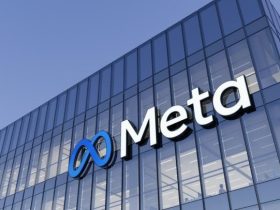Are you looking for a good investment opportunity in the real estate market? You may want to consider buying ugly houses. These properties may not look appealing from the outside, but they have the potential to bring in a significant profit if renovated and resold. In this article, we’ll explore the pros and cons of we buy ugly houses and why they may be a smart investment choice.
Pros:
Lower Purchase Price
The most significant advantage of buying an ugly house is the low purchase price. Ugly houses are often sold below market value, making them an attractive option for investors looking to purchase properties at a discount. You can use this to your advantage by investing in a property that needs work and renovating it to increase its value. This strategy can be especially beneficial in a hot housing market where prices are high.
Increased Profit Potential
Another benefit of buying an ugly house is the potential for increased profits. When you purchase a property at a discount and renovate it, you can sell it for a higher price than what you paid. This can lead to a significant profit margin, especially if you purchase multiple properties and renovate them simultaneously.
Less Competition
Ugly houses tend to have less competition than other properties on the market. Many investors are hesitant to invest in a property that needs work, and some homebuyers may not want to take on a fixer-upper. This can work to your advantage, as you may be able to negotiate a lower purchase price and secure a better deal.
Personal Touch
When you purchase an ugly house, you have the opportunity to put your personal touch on the property. You can choose the materials, colors, and design elements that appeal to you and create a unique space that stands out from other homes in the area.
Cons:
High Renovation Costs
One of the biggest drawbacks of buying an ugly house is the high renovation costs. Properties that need extensive repairs and upgrades can be costly to fix, and unexpected expenses can quickly add up. If you’re not experienced in home renovation, it can be challenging to estimate the costs accurately.
Time-Consuming
Renovating an ugly house takes time and effort. You may need to hire contractors, obtain permits, and manage the renovation process. This can be a time-consuming task, especially if you have other projects or work commitments.
Unpredictable Market
The real estate market is unpredictable, and there’s no guarantee that you’ll be able to sell the property at a higher price than what you paid. If the market takes a downturn, you may be stuck with an ugly house that you can’t sell.
Potential Legal Issues
Buying an ugly house can also come with potential legal issues. You’ll need to ensure that the property is up to code and that all necessary permits have been obtained. If you overlook any issues, you could face legal consequences and additional expenses.
Conclusion:
Buying an ugly house can be a smart investment choice if you’re willing to take on the risks and challenges that come with renovating a property. With a lower purchase price and potential for increased profits, it can be a lucrative opportunity in the real estate market. However, it’s essential to be aware of the potential drawbacks, including high renovation costs, time-consuming renovations, and legal issues. Ultimately, it’s up to you to decide if buying an ugly house is the right choice for your investment portfolio.










Leave a Reply